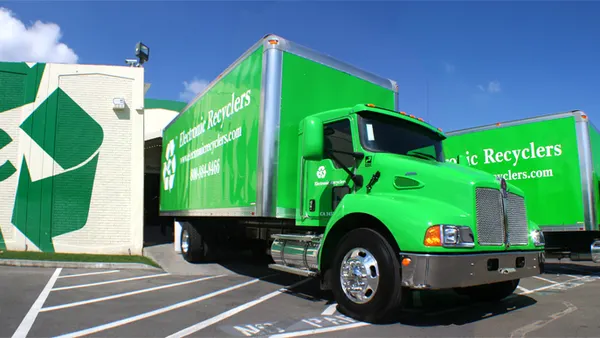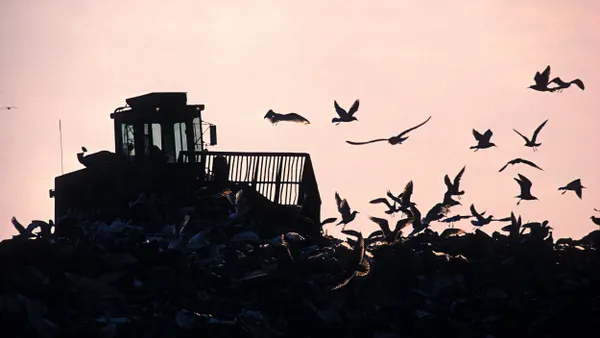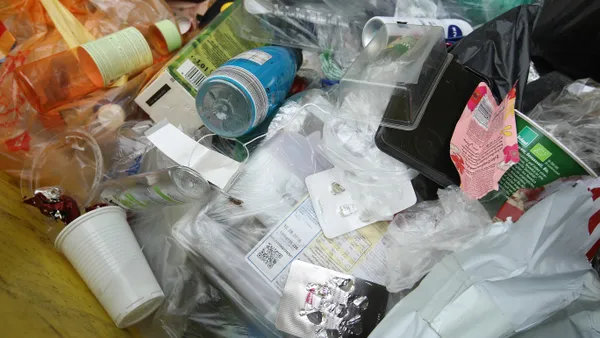Dive Brief:
- A ban on the sale or use of certain plastic bag categories took effect in Kenya this week, with a maximum penalty of up to $38,000 USD or four years of prison time, as reported by NPR, The Guardian and other publications.
- According to a notice from the country's National Environment Management Authority, this applies to both "carrier" and "flat" bags "with handles and with or without gussets." This will not apply to bags used for industrial packaging. The government has made it clear that their goal is to target businesses, which received six months notice of the new policy, rather than individuals for enforcement.
- The Kenyan Association of Manufacturers opposed the bill, saying that it would cause 176 manufacturers to close and lead to 60,000 layoffs. An estimated 3% of Kenyans work for these manufacturers, according to the association, as the country is a large regional exporter of the product.
Dive Insight:
Kenya reportedly now joins about 40 other countries, including neighbors in East Africa, that have enacted some form of plastic bag policy. Attempts to enact this policy have faced legals challenged before and skepticism remains about whether it will be effective, but multiple officials from the Kenyan government have been actively promoting it recently.
Reducing marine pollution was cited as a main factor behind the policy. Like many coastal countries, Kenya's beaches are often the sources or recipients of plastic debris. Earlier this summer, the U.N. Environment Programme hosted a clean-up day on a Kenyan beach that recovered about 2.2 tons of refuse within one hour. These types of scenes are often used as an example for why the bags should be regulated or more should be done to ensure cleaner waterways. Though restricting or banning the use of plastic bags also hasn't been shown as a decisive way to limit marine pollution.
The issue remains a divisive one in many U.S. cities and states, making any type of national policy highly unlikely. California's passage of a statewide policy last year was heralded as a win by environmental groups, but it has recently become more common to see state laws passed that prohibit bag policy rather than pass it. Local action has been more successful in states such as Massachusetts, though even there the fate of an ordinance in Boston is still up in the air. Policy that can address ocean pollution, without focusing as much on potential causes, has been less controversial. The Senate recently passed the Save Our Seas Act which would expand funding opportunities for state clean-ups and explore how waste enters the oceans.










